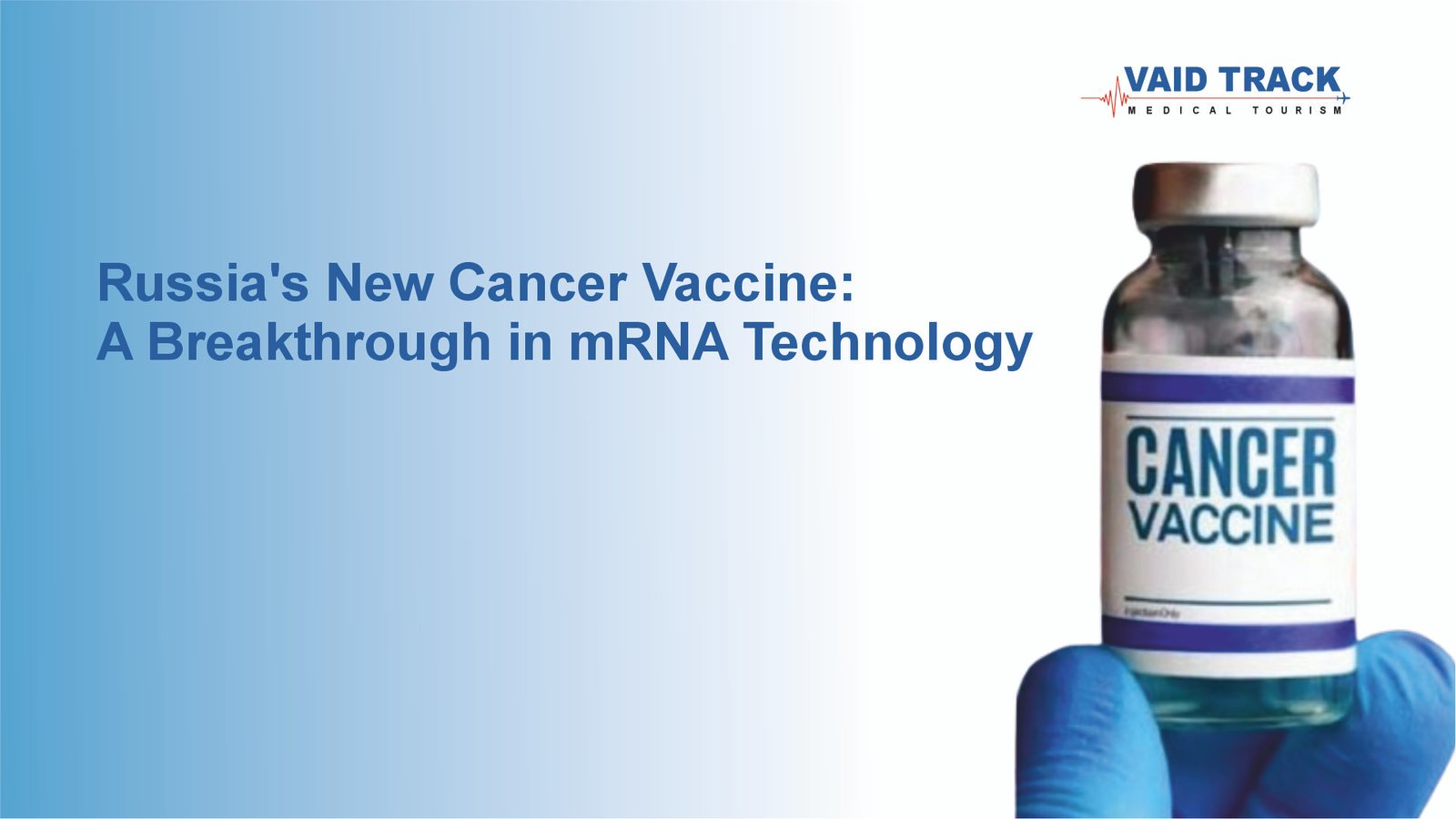What is the New mRNA Cancer Vaccine in Russia?
Cancer has been one of the deadliest diseases known to humankind, affecting millions of people worldwide. Scientists and researchers have spent decades searching for a cure, and recent advancements in mRNA technology have brought new hope. Russia has recently announced the development of a groundbreaking mRNA cancer vaccine, aiming to revolutionize cancer treatment and prevention. This article delves into Russia’s new cancer vaccine, how it works, its potential benefits, and its impact on the future of cancer treatment.
The new cancer vaccine in Russia is based on messenger RNA (mRNA) technology. Unlike traditional cancer treatments such as chemotherapy and radiation, which often damage healthy cells, mRNA vaccines work by instructing the body’s immune system to recognize and destroy cancerous cells. The vaccine is expected to target various types of cancer, making treatment more efficient and less invasive.
How Does the New Cancer Vaccine Work?
Understanding mRNA Technology
Messenger RNA, or mRNA vaccines, have been widely studied for their role in fighting infectious diseases like COVID-19. Now, Russia’s scientists have applied the same principle to cancer treatment. The vaccine carries genetic instructions that help the body produce proteins similar to those found on cancer cells. Once the immune system identifies these proteins as threats, it learns to attack real cancer cells, preventing their growth and spread.
Key Features of Russia’s New Cancer Vaccine
- Personalized Medicine: Each vaccine dose can be tailored to an individual’s cancer type and genetic makeup.
- Targeted Therapy: Unlike chemotherapy, which affects both healthy and cancerous cells, mRNA vaccines precisely target only cancer cells.
- Long-Lasting Immunity: The vaccine trains the immune system to recognize and destroy cancer cells over a long period.
- Minimal Side Effects: Early trials suggest that vaccine side effects are mild compared to traditional cancer treatments.
What is the New Cancer Cure in Russia?
While the vaccine is not a complete cancer cure, it represents a significant step forward in treating the disease. Scientists believe that in combination with other treatments, Russia’s new cancer vaccine could help manage or even eliminate certain types of cancer in the future.
Can mRNA Stop Cancer?
The success of mRNA vaccines in infectious disease prevention has inspired researchers to explore their potential in cancer treatment. mRNA can stop cancer by training the immune system to recognize and eliminate cancer cells before they multiply uncontrollably. If proven successful, mRNA cancer vaccines could change the way cancer is treated worldwide.
What is Vaccine Side Effects?
As with any medical intervention, mRNA vaccines may cause some side effects. Clinical trials of Russia’s new cancer vaccine have reported mild to moderate side effects, including:
- Fatigue
- Mild fever
- Muscle pain
- Headache
- Temporary inflammation at the injection site
These side effects are considered minor compared to the severe adverse effects of chemotherapy and radiation therapy.
How Long Does mRNA Stay in Your Body?
One of the common concerns surrounding mRNA vaccines is their longevity in the body. Unlike live virus vaccines, mRNA vaccines do not alter DNA and degrade quickly after delivering their message to the immune system. Typically, mRNA stays in the body for only a few days before breaking down naturally.
Russia’s Role in the Future of Cancer Treatment
Comparison with Other Countries
While the United States and European nations have also been working on mRNA cancer vaccines, Russia’s new cancer vaccine is one of the first to be announced for potential free distribution. Russia’s approach highlights the country’s commitment to making advanced medical treatments accessible to its citizens.
India is a global leader in affordable healthcare, and there is growing interest in bringing the new cancer vaccine to India. Given India’s advancements in biotechnology and pharmaceutical industries, collaboration between Russia and India could accelerate vaccine availability for Indian cancer patients.
What Are the Symptoms of the New Virus?
Although this article focuses on cancer vaccines, there is global concern about emerging viruses. Symptoms of new viral infections may include:
- High fever
- Persistent cough
- Shortness of breath
- Fatigue
- Loss of taste or smell
Keeping up with vaccine developments, including mRNA vaccines for viruses and cancers, is crucial for global health.
Russia’s new cancer vaccine marks an exciting advancement in the fight against cancer. By utilizing mRNA vaccine technology, this breakthrough could significantly improve cancer treatment, offering hope to millions of patients worldwide. As clinical trials continue, researchers remain optimistic about the vaccine’s success. With international collaboration, we may soon see the new cancer vaccine in India and other countries, making affordable and effective cancer treatment accessible to all.
While the question “Can mRNA stop cancer?” is still under study, early results are promising. The future of cancer treatment is evolving, and Russia’s contribution to mRNA vaccines could pave the way for a new era in cancer care.

